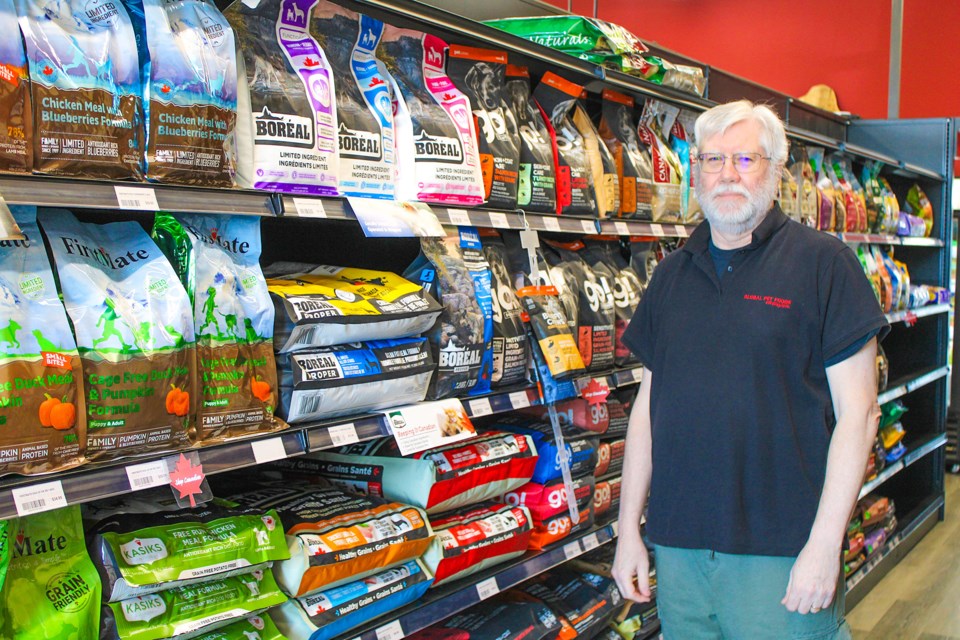PELHAM - Forget about U.S. tariffs. Pet owners in Pelham appear to be responding with some “tar-ruffs” of their own and switching to food for Fido that’s made in Canada.
John McFetridge, owner of Global Pet Foods in Fonthill, said that many customers come to the store because it already stocked with plenty of Canadian products. He’s noticed customers have become more diligent in their shopping habits.
“There have definitely been some people who've looked more closely at the labels and some people have switched to Canadian products,” McFetridge said. “It’s definitely happening.”
That’s because customers are becoming laser-focused on a couple of things, he said.
“It’s where the food is sourced from and manufactured, and where the ownership is,” he said. “That wasn't like it used to be. The issue then was, where was it sourced?”
And while the spectre of tariffs is what seems to be what is currently motivating people to feed their furry friends with products made in Canada, it’s a trend that dates back prior to U.S. President Donald Trump returning to the White House.
“The big push from Global for quite a while was the healthy choice,” McFetridge said. “Usually that means locally sourced as much as possible. Global always had a lot of a lot of Canadian brands.”
Even the American brands the store does carry are not made by the big multinationals, like Mars Petcare (Iams, Royal Canin and others) or Nestle Purina (Purina Dog and Cat Chow, Pro Plan and Fancy Feast cat food). Instead, it’s smaller, family owned businesses that Global carries, he said.
Dev Shourie, owner the Pet Valu Fonthill location said it’s a similar situation at his store.
“They certainly are,” he said, when asked if customers were asking about Canadian-made goods.
He estimated that about 75 per cent of the products Pet Valu carries are Canadian made and people who may have been feeding food to their pets that was produced south of the border are now looking to make the switch to Canadian products.
“They are looking for something different,” he said.
Likewise, Matt Edwards, co-owner of Ruffins Pet Centre, also in Fonthill, said customers are asking more and more about products that are made in Canada.
“People are switching not only from U.S. brands, but other brands made outside of Canada,” he said, adding that the store had products that are sourced locally and more are coming.
“We’re looking at expanding out Canadian products,” he said.
The U.S. has already slapped a 25 per cent tariff on Canadian steel and aluminium and on April 2, 25 per cent tariffs will be placed on Canadian imports to the U.S., including an additional 25 per cent on steel and aluminum.
In addition to 25 per cent tariffs on aluminium and steel from the U.S., Canada has responded with tariffs of its own on $30 billion worth of goods imported from the U.S. including Canada's countermeasures list such as orange juice, peanut butter, wine, spirits, beer, coffee, appliances, apparel, footwear, motorcycles, cosmetics, and certain paper products.
